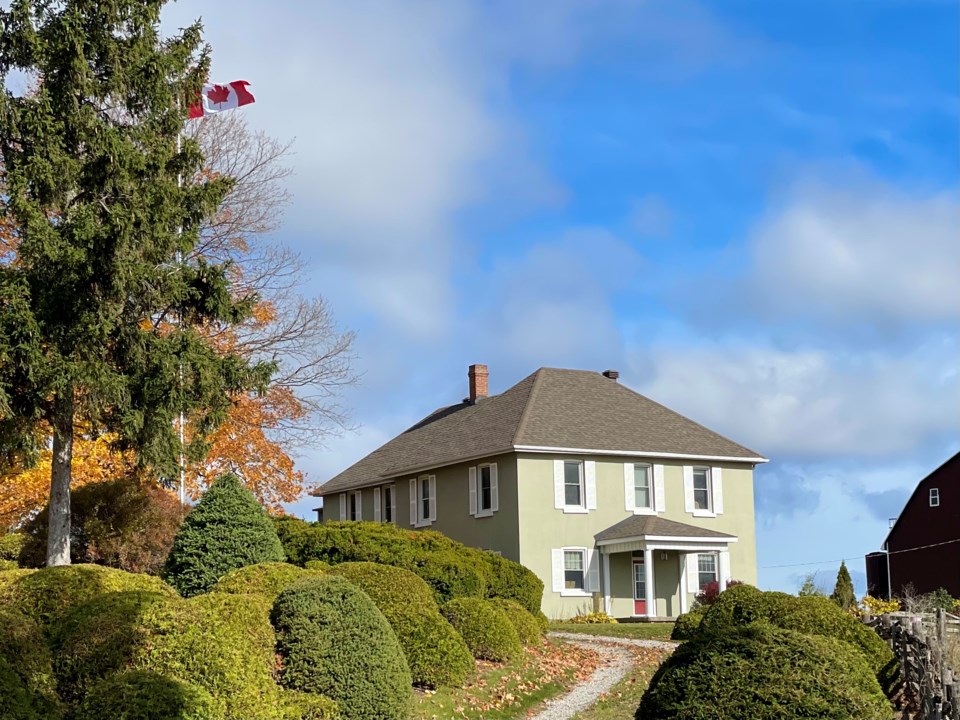The impacts of the Ontario government's controversial Bill 23 on municipalities continue to be uncovered.
Innisfil council learned at its Oct. 25 meeting the nearly year-old provincial legislation – known as the More Homes Built Faster Act – will hinder its ability to designate properties currently listed on its heritage registry for the better part of the remainder of the 2020s.
“When it comes down to it, we have a deadline of Jan. 1, 2025,” said deputy mayor Kenneth Fowler, who also serves as the chair of the town's heritage advisory committee. “Once that occurs, the window closes, and for five years we are not able to designate any properties; we’re not able to list them, we’re not able to register them. It’s just flat out, 'no, they’re off the table.'”
There are currently 57 properties listed in Innisfil that have not been designated.
Schedule 6 of the bill enacted amendments to the Ontario Heritage Act (OHA), including a new provision as to how long a property can be listed on a town’s heritage register without designating it under the OHA. Any property listed before Dec. 31, 2022 must be designated by Jan. 1, 2025, or it will be removed from the register. Properties listed after Jan. 1, 2023, must be designated within two years of being listed or they will suffer the same fate.
The municipality and its heritage committee have a daunting task in front of them. Town staff are going through the process of prioritizing the 57 listed properties to determine designations that are the most pressing ahead of the 2025 deadline.
“We’re trying to find 13 or 14 of our top homes, the ones that have the most significance and importance,” Fowler said. “We’re shooting for approximately one a month, on average. Every meeting we try to identify a house and the significance of it and what we can do.”
“Staff are proposing to prioritize properties for which planning applications related to redevelopment/demolition are anticipated,” staff indicated in a report. Processes have been started for two of the 13 properties staff have planned to bring forward for designation in advance of 2025: The Kirkpatrick Store on Killarney Beach Road, which council sent back to committee for further discussion, and 6225 Yonge St., which will be dealt with as part of the development application process for that property.
Before the changes, listing a property was a tool municipalities could use to help keep some sites standing in the face of development pressure. It would delay the issuance of a demolition permit in most cases, giving the town further opportunity to determine if a property should be designated under the OHA and saved, or if it would be better suited to be redeveloped and often destroyed.
The amendments in Bill 23 – which also extend the objection process for listing to all previously listed properties, no matter when they were listed – make it much more difficult for municipalities to preserve their heritage.
“If the process isn’t started by the deadline, that’s it,” Fowler said. “When the developers come in we cannot save the property, we can’t delay the demolition. It’s said, it’s done, it’s gone.”
Designation becomes slightly more difficult as well under the new guidelines. Previously, only one of the nine criteria under Ontario Regulation 9/06 was required to be met for designation to be warranted; now, municipalities must meet two criteria, which staff say could impact more than 200 properties in Innisfil.
Guidance for Heritage Conservation Districts – such as downtown Cookstown – has also changed, with 25 per cent of the properties within a district now needing to also meet two of the nine criteria, similar to the designation process.
“Bill 23 will result in the removal of potential heritage properties from the registry. Identifying and protecting these heritage properties in our communities that have rich cultural or heritage value is an important part of balancing the future growth of the town,” staff stated in the report. “It also provides a means of helping to guide changes in land use planning while keeping the buildings, structures and landscapes that give each of our communities its unique identity.”



